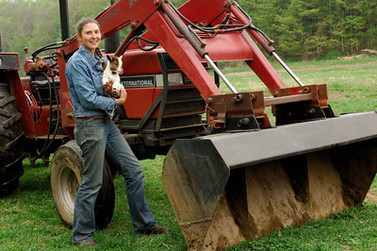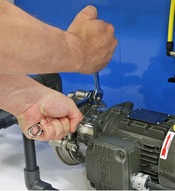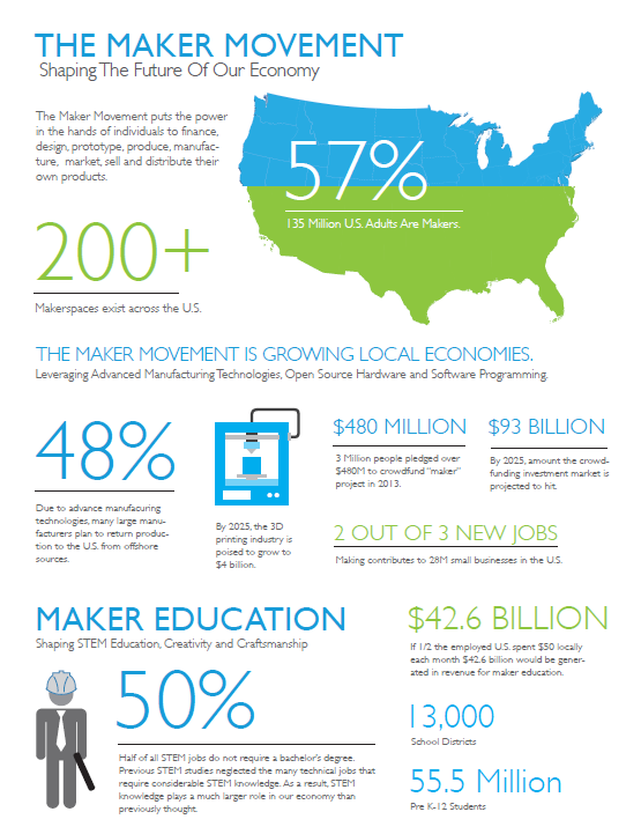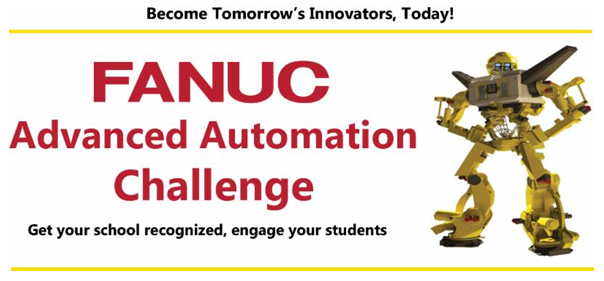|
Are you familiar with the term “data driven manufacturing”? Low cost sensors and the ability to connect them to the internet have made data collection easier than ever before. [U]sing data to reduce costs through next generation sales and operations planning, dramatically improved productivity, supply chain and distribution optimization, and new types of after-sales services. This video goes into greater detail about data driven manufacturing, courtesy of Modern Machine Shop: As manufacturing gets more technical, educators work to stay ahead of the curve by teaching students for 21st century careers. Schools are turning to industry-leading curriculum experts like Amatrol, FANUC, Lincoln Electric and Turbine Technologies to lend real-world credibility to teach advanced manufacturing processes. More than trouble-shooting and problem solving, manufacturers are looking for their next employees (your students) to be able to integrate highly technical skills into an established process to make current processes more efficient and cost-effective.
Moss has worked with leading manufacturers for over 40 years. If you’re looking to align your educational tools with local industry needs, contact us for a review. Our Education Specialists will ensure you align your curriculum with what is most relevant to your local industry. Further reading: Data-Driven Manufacturing
1 Comment
Since Lincoln Electric introduced U/LINC, we have fielded many questions about this curriculum. We’re answering the three most common questions here:
As a welding expert, we would like your input – sign up for a 30 day free trial and tell us what you think. Would adding structured curriculum help your program succeed?  Consider this student: Abby is an agriculture student who was raised on a family farm. She sees her dad struggle with the same piece of equipment year after year. She thinks she has a simple solution. Her school has a Makerspace, and she has printed a part in 3D that she thinks will solve the problem. She has talked with her instructor about sharing the same design to other local farmers that have the same issue as her dad. Is Abby ready for an Entrepreneurship course? Entrepreneurs come in all shapes and sizes. While Abby is looking for a simple solution to a recurring problem, and is looking to share her solution with others. She has the shades of being a developing Entrepreneur. Entrepreneurship coursework used to live in the Business departments almost exclusively. As we deepen our understanding about how entrepreneurs views obstacles, assess risk, develop solutions, innovate and solve problems, we are beginning to realize that Entrepreneurship coursework can benefit not only business students, but also agriculture students, engineering students, design students… In short, anyone who innovates and problem solves could benefit from the framework laid out in Entrepreneurship coursework. Entrepreneurship coursework is designed to provide:
Many schools are looking to develop entrepreneurship coursework. We can help schools connect the dots with smart tools from Pitsco Education (STEM framework) and Startup Genius (Entrepreneurship). Tell us: what are you looking for in an Entrepreneurship program?  We often talk about the advanced skills positions available in today's manufacturing, but we can't forget about the importance of the fundamentals, the basic skills that employers assume candidates have when they hire. We came across an article in Manufacturing Today that highlights the need for basic assembly skills: There was a time, not long ago, when employers could rely on new hires to possess rudimentary knowledge of basic assembly methods, schematic diagrams, and proper use of hand tools. These skills were the result of individuals who grew up maintaining their cars. Yet that way of life is largely a thing of the past, much to the dismay of employers. The current focus on advanced technologies and high-end skills is crucial and necessary, but you cannot overlook the need for basic skills, such as the ability to install bearings, lubricate machine slides, or align couplings. These skills range from welding to assembly to how to use tools effectively. These fundamental skills are as crucial today as they ever have been. Click here to learn what several companies are doing to combat this skills gap, and how Amatrol is providing curriculum and tools to address this need.
 The highly-regarded Brookings Institute recently published a compelling article by Senior Fellow, Mark Munro, " The Skills Supply Chain Must Change as Software Eats the World," about the changing face of workforce development. The article illuminates the recent evolution of "digitization," as well as exploring "a variety of training-system responses to the talent needs of industry." The impacts of software exist hand-in-hand with those of hardware, and they are long-term, so they require meaningful consideration by executives, educators and workers. Toyota Engineering and Manufacturing's Dennis Dio Parker addresses Toyota’s interest in having factory floor worker engaged with a particular "'technical core' of professional competencies, including in electronics, robotics controls, circuitry, and digital learning. 'We have to focus in detail on exactly what’s needed in talent coming into the company and whether potential workers have it,' said Parker. 'I will say we are having a difficult time procuring the talent we need because, first, there’s not enough of it now and second, we need that talent to be more talented, with more specific skills.'” We've been hearing a lot about the Maker Movement recently. But what is the Maker Movement? Adweek hits it on the head: The maker movement, as we know, is the umbrella term for independent inventors, designers and tinkerers. A convergence of computer hackers and traditional artisans, the niche is established enough to have its own magazine, Make, as well as hands-on Maker Faires that are catnip for DIYers who used to toil in solitude. Makers tap into an American admiration for self-reliance and combine that with open-source learning, contemporary design and powerful personal technology like 3-D printers. The creations, born in cluttered local workshops and bedroom offices, stir the imaginations of consumers numbed by generic, mass-produced, made-in–China merchandise. In other words, the Maker Movement is home to the do-ers, the inventors, the designers of our generation. The people who use creativity to create and do.
Makers benefit from a space that has the tools to spur their creativity - whether it's a Fab Lab or a Makerspace - this space is designed to give people the tools to "figure it out." Most are filled with the tools of the trade, from 3D printers, lasers, robotics, and more. These people are looking for efficiencies, and driving creators and manufacturers forward with new innovation. Have you developed or used a Makerspace? What makes a successful Makerspace? Share your tips in the comments section. You just hired a new instructor for your welding school with years of skilled trade experience. You know they’ll be a good mentor for your students. But what does he or she know about technical instruction? Has he ever developed curriculum for a year-long program educational program? What will he teach on Day 1? Consider U/LINC™ Curriculum from Lincoln Electric – We have over 1000 lesson plans, student activities, assessments, videos and presentations covering everything from welding safety to welding engineering and everything in between. Let your instructor teach his trade – We’ll do the rest.
FANUC America is inviting all FANUC CERT schools to design the next Project Based Learning (PBL) kit!
The FANUC Advanced Automation Challenge provides a unique opportunity to show us your innovations. FANUC is asking Tomorrow's Innovators to highlight the utilization of robotic automation and technology through Project Based Learning that exemplify STEM learning outcomes. Show us your creative ideas using Science, Technology, Engineering, and Math to problem solve real-world challenges and strengthen your STEM knowledge. Great prizes at stake, including: 1st place: (1) FANUC MliA Tabletop robot and (1) $1500 scholarship award 2nd place: (2) Teach Pendants and Conversion Kits, (10) Academic ROBOGUIDE Licenses*, and (1) $500 scholarship award 3rd place: (10) Academic ROBOGUIDE Licenses* and (1) $500 scholarship award Click here for submission guidelines, as well as the official submission form: Forbes magazine recently published a compelling article, 3 Ways The Skills Gap Offers Opportunity, about the state and evolution of the workforce for skilled workers. The article aims to dispel the myth that a four-year degree is the optimal path to a prosperous future, reminding readers, for example that, “today around 13 million Americans, many with college degrees, are unemployed, and that does not include those who are underemployed or have given up trying to find work. Yet, nearly five million jobs remain unfilled. Jobs in advanced manufacturing, electrical trades, jobs in healthcare and cyber-security to name just a few.”
The economy needs more skilled workers, who gain mastery through hands-on work and via vocational and technical training. The article further points out how the path of vocational and technical training might best be navigated, and how that path helps people avoid the often immense debt associated with a four-year college degree, while also providing “real world,” industry recognized skills in a hands-on context.  If you teach in an ag classroom, you know your students are as diverse as they come. Students may be drawn to agriculture because of family history or a love of animals, but what they learn in the classroom has the power to transform in ways we haven’t thought of yet. Students who study agriculture go on to careers ranging from biotechnology to machinists and engineers. No other field of study has such broad implications. What do students need to master to be successful in ag-related careers? We’ve developed a list of the essential subject matter for ag students:
What subject matter is a must-have for your agriculture education programs? Let us know in the comment section! Moss can help you enhance your agriculture programs – see our Agriculture Education page for more information. |
AuthorYou have questions about STEM education? You're not alone! We're here to share ideas and provide thought-provoking commentary. Let us know your thoughts! Sign Up for Email Updates For Email Marketing you can trust. Categories
All
Archives
February 2017
|
- Home
-
K-12
- College
- Industry
- Certifications
-
Partners
- Afinia-3D Printing
- Amatrol-Manufacturing Training Equipment
- Apolo Studios- Welding Simulation
- Bantam Tools - CNC
- CEF-Custom Educational Furniture
- DAC Worldwide-Manufacturing Training Equipment
- Greene Manufacturing Inc - Furniture
- Iconic CNC
- Interior Concepts-Furniture
- MSSC Certifications
- MINDS-i Education
- Pitsco Education-STEM
- SimLog-Heavy Equipment Simulation
- Stokes Robotics
- Techno CNC Systems
- Universal Laser Systems
- VictoryXR - Virtual Reality
- WB Mfg - Furniture
- Funding
- Contact
- About
- Home
-
K-12
- College
- Industry
- Certifications
-
Partners
- Afinia-3D Printing
- Amatrol-Manufacturing Training Equipment
- Apolo Studios- Welding Simulation
- Bantam Tools - CNC
- CEF-Custom Educational Furniture
- DAC Worldwide-Manufacturing Training Equipment
- Greene Manufacturing Inc - Furniture
- Iconic CNC
- Interior Concepts-Furniture
- MSSC Certifications
- MINDS-i Education
- Pitsco Education-STEM
- SimLog-Heavy Equipment Simulation
- Stokes Robotics
- Techno CNC Systems
- Universal Laser Systems
- VictoryXR - Virtual Reality
- WB Mfg - Furniture
- Funding
- Contact
- About




 RSS Feed
RSS Feed
